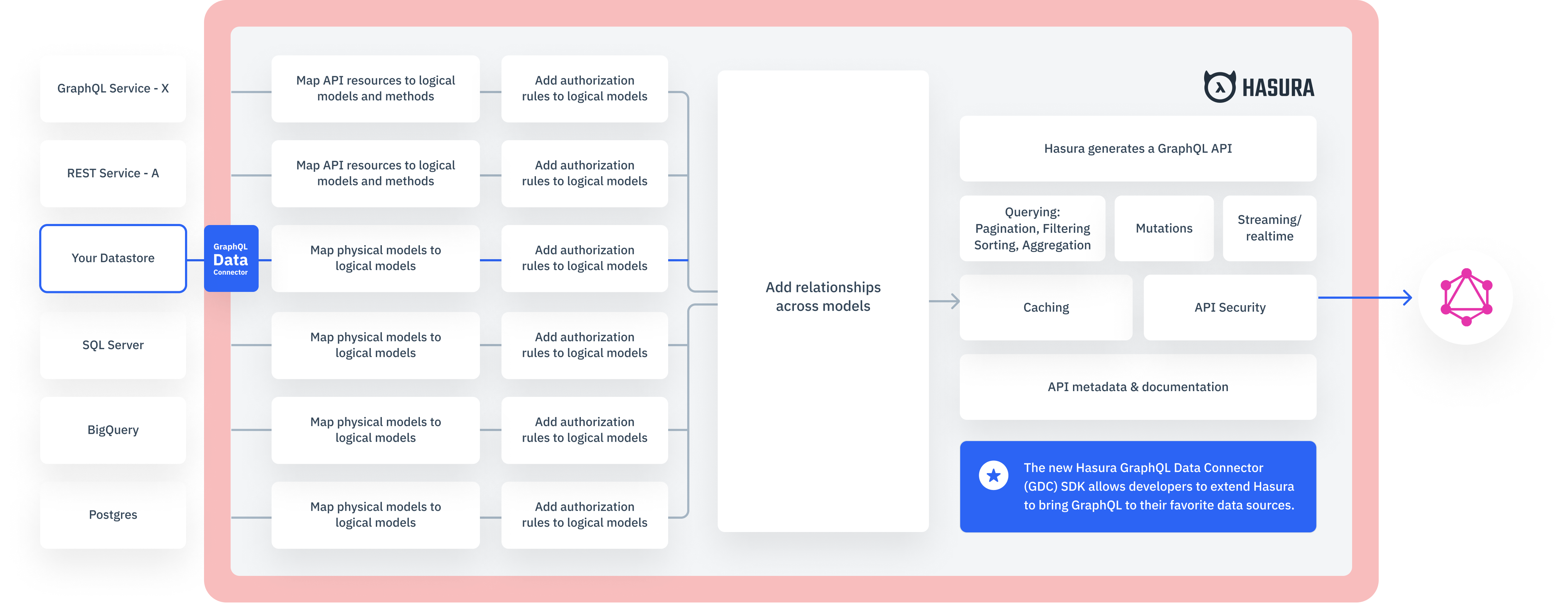Since its launch a few years ago, GraphQL platform Hasura has made it easier for developers to use GraphQL by simplifying the process of connecting their data sources to their applications and then accessing them through GraphQL. Now, at its virtual HasuraCon ’22 developer conference, Hasura is expanding this capability by launching its GraphQL Data Connector (GDC), a new SDK that allows developers to bring virtually any data source into Hasura in order to expose it as a GraphQL API.
It’s worth noting that Hasura, as an open-source project, already had some of these capabilities, but as the company’s CEO and co-founder Tanmai Gopal noted, the new SDK now makes this far more accessible and available over the network — and developers can use the language of their choice to write these agents, too.
“For folks in the enterprise, this becomes really valuable because sometimes they have all of this mission-critical data and these legacy sources that nobody is innovating on anymore,” Gopal said. “Or you want to use these niche data sources that are coming in or special workloads that are still kind of early but you’re ready to use them in a critical way. Now, what we can do is — along with these contributors, with database vendors, with the Hasura team itself — we can collaborate and create these agents, and that way, we can start unlocking access incrementally to all of these sources.”
With today’s release, Hasura is also announcing a few other updates. Hasura Cloud and Cloud Enterprise are now available on Google Cloud, for example. Given Hasura’s background in working with PostgreSQL databases, Google Cloud’s new AlloyDB service makes for an interesting fit here.
“Organizations are rapidly adopting GraphQL and we are excited to help these organizations modernize and digitally transform their applications. With Hasura’s GraphQL platform available on Google Cloud, developers around the world can build next generation applications at scale with lower costs,” said Bikram SIngh Bedi, managing director, Google Cloud India.
Hasura co-founder Rajoshi Ghosh told me that while the company launched its cloud service on AWS two years ago, the team always knew it had to be where its customers were. “Because we are where your data is, that necessitates us to be on all cloud providers,” she said. “We saw a lot of uptake for Google during the beta program. [ … ] Your data is everywhere. It’s multiplying. It’s growing. Whether you know it or not, your data is mushrooming somewhere. It’s just like this. So data is mushrooming on different data sources and then different clouds. Hasura then becomes that ultimate data API, which removes that infrastructure layer.”
With this, Hasura now supports AWS and Google Cloud, though the team tells me that Azure support is in the works as well. The service already supports Microsoft’s SQL Server and with today’s release it is adding event trigger support to its platform.
Also new are a streaming subscription API for building real-time apps, as well as support for OpenTelemetry Traces in Hasura Cloud and Enterprise.

